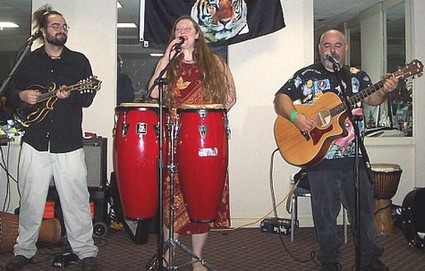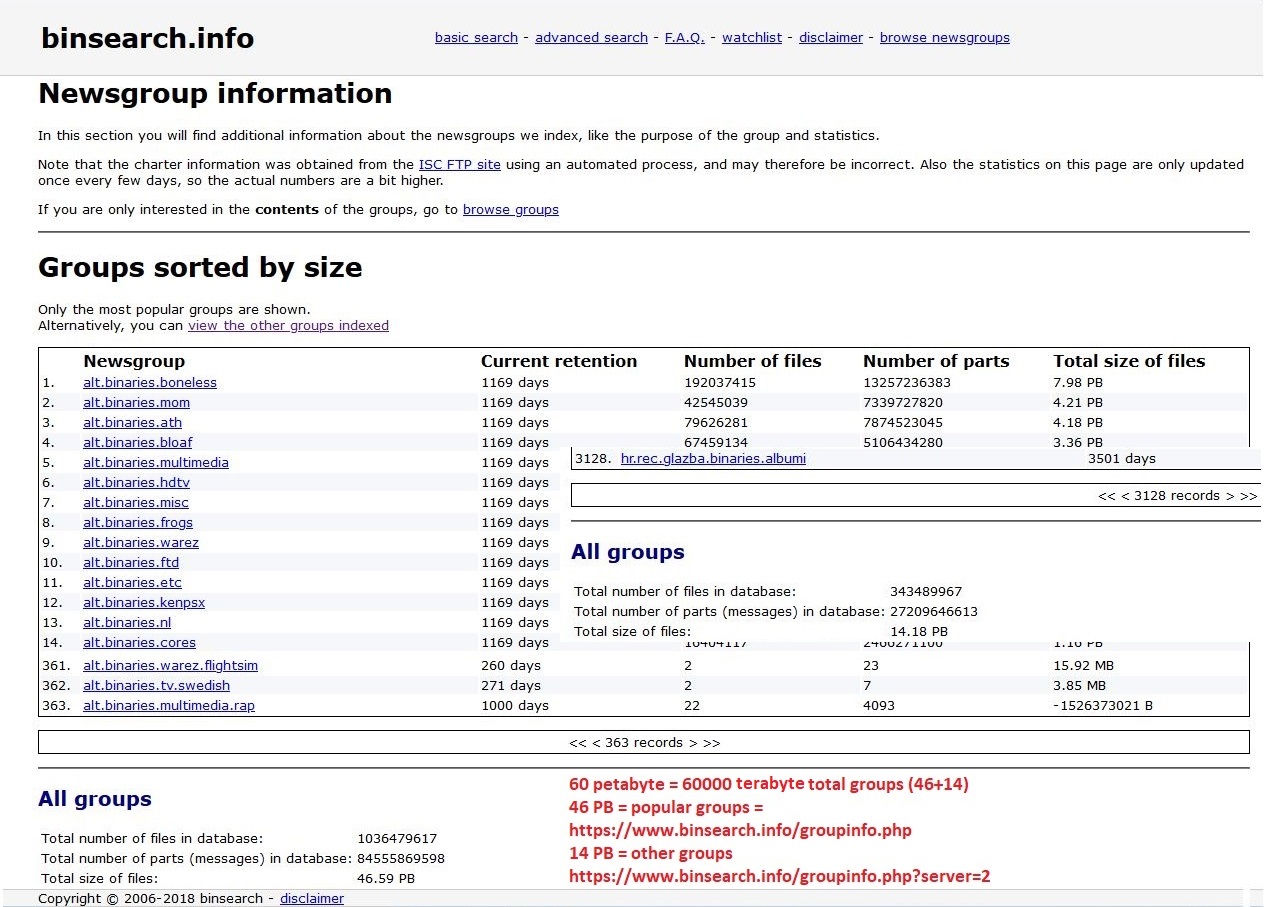|
Pagan's Night Out
Pagan's Night Out, or PNO, is a regularly scheduled social get-together, usually monthly, held in hundreds of Pagan and Neopagan communities around the world. It began in Houston, Texas, in 1992 as a way for users of the Brewers' Witch BBS to meet face to face, Pagan's Night Out has become a worldwide phenomena. Held in bars, pubs, coffee shops, cafes, restaurants and meeting halls, PNO is a social event for Wiccans, Asatruar, Thelemites, Druids, Setians and the hundreds of other Neopagan sects and sub-divisions. Origins The Brewers' Witch BBS The Brewers' Witch Bulletin Board System was started in May 1992, running on a DOS PC using the Waffle BBS software and a single phone line. It was one of three Pagan-oriented BBSs in Houston at that time and, thanks to its Usenet newsgroups and email, quickly became a favorite haunt of the online Neopagans there.Boardwatch Magazine, October 1995 Later expanding to 5 phone lines and an ISDN feed running on a FreeBSD UNIX system, the ... [...More Info...] [...Related Items...] OR: [Wikipedia] [Google] [Baidu] |
Paganism
Paganism (from classical Latin ''pāgānus'' "rural", "rustic", later "civilian") is a term first used in the fourth century by early Christianity, early Christians for people in the Roman Empire who practiced polytheism, or ethnic religions other than Judaism. In the time of the Roman empire, individuals fell into the pagan class either because they were increasingly rural and provincial relative to the Christian population, or because they were not ''Miles Christianus, milites Christi'' (soldiers of Christ).J. J. O'Donnell (1977)''Paganus'': Evolution and Use ''Classical Folia'', 31: 163–69. Alternative terms used in Christian texts were ''Greeks, hellene'', ''gentile'', and ''wikt:heathen, heathen''. Ritual sacrifice was an integral part of ancient Classical mythology, Graeco-Roman religion and was regarded as an indication of whether a person was pagan or Christian. Paganism has broadly connoted the "Civil religion, religion of the peasantry". During and after the Middle A ... [...More Info...] [...Related Items...] OR: [Wikipedia] [Google] [Baidu] |
FreeBSD
FreeBSD is a free and open-source Unix-like operating system descended from the Berkeley Software Distribution (BSD), which was based on Research Unix. The first version of FreeBSD was released in 1993. In 2005, FreeBSD was the most popular open-source BSD operating system, accounting for more than three-quarters of all installed and permissively licensed BSD systems. FreeBSD has similarities with Linux, with two major differences in scope and licensing: FreeBSD maintains a complete system, i.e. the project delivers a kernel, device drivers, userland utilities, and documentation, as opposed to Linux only delivering a kernel and drivers, and relying on third-parties for system software; FreeBSD source code is generally released under a permissive BSD license, as opposed to the copyleft GPL used by Linux. The FreeBSD project includes a security team overseeing all software shipped in the base distribution. A wide range of additional third-party applications may be installe ... [...More Info...] [...Related Items...] OR: [Wikipedia] [Google] [Baidu] |
Bulletin Board Systems
A bulletin board system (BBS), also called computer bulletin board service (CBBS), is a computer server running software that allows users to connect to the system using a terminal program. Once logged in, the user can perform functions such as uploading and downloading software and data, reading news and bulletins, and exchanging messages with other users through public message boards and sometimes via direct chatting. In the early 1980s, message networks such as FidoNet were developed to provide services such as NetMail, which is similar to internet-based email. Many BBSes also offer online games in which users can compete with each other. BBSes with multiple phone lines often provide chat rooms, allowing users to interact with each other. Bulletin board systems were in many ways a precursor to the modern form of the World Wide Web, social networks, and other aspects of the Internet. Low-cost, high-performance asynchronous modems drove the use of online services and BBSes t ... [...More Info...] [...Related Items...] OR: [Wikipedia] [Google] [Baidu] |
Modern Pagan Events
Modern may refer to: History *Modern history ** Early Modern period ** Late Modern period *** 18th century *** 19th century *** 20th century ** Contemporary history * Moderns, a faction of Freemasonry that existed in the 18th century Philosophy and sociology * Modernity, a loosely defined concept delineating a number of societal, economic and ideological features that contrast with "pre-modern" times or societies ** Late modernity Art * Modernism ** Modernist poetry * Modern art, a form of art * Modern dance, a dance form developed in the early 20th century * Modern architecture, a broad movement and period in architectural history * Modern music (other) Geography *Modra, a Slovak city, referred to in the German language as "Modern" Typography * Modern (typeface), a raster font packaged with Windows XP * Another name for the typeface classification known as Didone (typography) * Modern, a generic font family name for fixed-pitch serif and sans serif fonts (for ... [...More Info...] [...Related Items...] OR: [Wikipedia] [Google] [Baidu] |
Céilí's Muse
Céilí's Muse was a Celtic folk band active in Houston, Texas from 1989 until 1997. Formed by Maggie Drennon and Mary Maddux, the duo performed a combination of traditional and contemporary Irish and Scottish folk songs at local festivals and venues like Houston's Red Lion Pub and later McGonigel's Mucky Duck Pub. Their first album was a limited release cassette, ''One Voice'' in 1991. At the CD release performance for their second album, ''Circles of Stone'' in 1993 at the Mucky Duck, Maggie saw Chuck Ivy enter the room and called from the stage "You know something about sound. Fix it!" thus enlisting him as their sound engineer for the next year. Melanie O'Sullivan joined as a singer in January 1994 and Chuck moved from behind the sound board onto the stage as bass guitar and Chapman Stick player in October of the same year for the recording of the group's third album ''Céilí's Muse Live: Muse Secret #73''. In the summer of 1995 Mary moved to New England leaving the ... [...More Info...] [...Related Items...] OR: [Wikipedia] [Google] [Baidu] |
Celtic Music
Celtic music is a broad grouping of music genres that evolved out of the folk music traditions of the Celtic people of Northwestern Europe. It refers to both orally-transmitted traditional music and recorded music and the styles vary considerably to include everything from traditional music to a wide range of hybrids. Description and definition ''Celtic music'' means two things mainly. First, it is the music of the people that identify themselves as Celts. Secondly, it refers to whatever qualities may be unique to the music of the Celtic nations. Many notable Celtic musicians such as Alan Stivell and Paddy Moloney claim that the different Celtic music genres have a lot in common. These following melodic practices may be used widely across the different variants of Celtic Music: *It is common for the melodic line to move up and down the primary chords in many Celtic songs. There are a number of possible reasons for this: **''Melodic variation'' can be easily introduced. Mel ... [...More Info...] [...Related Items...] OR: [Wikipedia] [Google] [Baidu] |
SONA (band)
SONA was a Neo-Pagan music band that toured and performed at Neo-Pagan gatherings and other events throughout the Midwestern United States during the first decade of the 21st century. SONA's three members were sometimes referred to as "the Peter, Paul and Mary of Pagan music." The three members of SONA were Beltana Spellsinger, "Papa" Joe Credit and his son Joe Credit III. Beltana played the conga drums, Papa Joe played guitar and Joe Credit III played mandolin. Each member also contributed to songwriting for the group. Formation The members of SONA met in 2000 at Brushwood Folklore Center in New York City as they attended the Sirius Rising and Starwood music festivals. Beltana reports having a dream about a mandolin player the night before meeting the two Joes.Interview with SONA January 29, 200 ... [...More Info...] [...Related Items...] OR: [Wikipedia] [Google] [Baidu] |
Boline
The boline (also spelled ''bolline'', pron.: boh-leen) is a white-handled ritual knife, one of several Magical tools in Wicca, magical tools used in Wicca, mainly for the cutting of herbs and inscribing candles. Description Unlike the athame, which in most traditions is never used for actual physical cutting, the boline is used for cutting cords and herbs, carving candles, etc. It has a small, straight or crescent-shaped blade with, traditionally, a white handle. Purpose The boline has been adopted by several other modern forms of witchcraft including Eclectic Wicca. Among these later traditions opinions vary as to whether the boline is truly a magical tool or is merely of utilitarian purpose. Similarly, sometimes a white-hilted knife called a ''kirfane'' (various spellings) is used, for roughly the same purposes as the boline. According to the Kitchen Witchcraft philosophy, the use of magical tools for mundane purposes like cooking is actively encouraged, and as such there is l ... [...More Info...] [...Related Items...] OR: [Wikipedia] [Google] [Baidu] |
Usenet Newsgroup
A Usenet newsgroup is a repository usually within the Usenet system, for messages posted from users in different locations using the Internet. They are discussion groups and are not devoted to publishing news. Newsgroups are technically distinct from, but functionally similar to, discussion forums on the World Wide Web. Newsreader software is used to read the content of newsgroups. Before the adoption of the World Wide Web, Usenet newsgroups were among the most popular Internet services, and have retained their noncommercial nature in contrast to the increasingly ad-laden web. In recent years, this form of open discussion on the Internet has lost considerable ground to individually-operated browser-accessible forums and big media social networks such as Facebook and Twitter. Communication is facilitated by the Network News Transfer Protocol (NNTP) which allows connection to Usenet servers and data transfer over the internet. Similar to another early (yet still used) protocol S ... [...More Info...] [...Related Items...] OR: [Wikipedia] [Google] [Baidu] |
Council Of Magickal Arts
The Council of Magickal Arts, Inc. (CMA) is a Neo-pagan organization in Texas, and runs one of the USA's largest bi-annual Neo-pagan festivals in the Southern United States.Provided by CMA registration, 2012 History Founded in 1980, the CMA is a 501(c)(3) non-profit corporation, registered in the state of Texas. CMA's festivals are held on a parcel of land called Spirit Haven Ranch, which is owned by the corporation. CMA produces an online quarterly newsletter, ''The Accord''. CMA promotes spirituality based on Pagan beliefs, and is open to people of all traditions who are interested in celebrating nature, spirit and community. Starting out as a joint camping event of several covens and some solitary practitioners, as of 2012, CMA had a membership of nearly 1000 people and festival attendance of 500 or more at each festival. ''The Accord'' ''The Accord'' is the online quarterly periodical of the corporation, and contains a wide range of articles by members. In the past ''The ... [...More Info...] [...Related Items...] OR: [Wikipedia] [Google] [Baidu] |
Boardwatch
''Boardwatch Magazine'', informally known as ''Boardwatch'', was initially published and edited by Jack Rickard. Founded in 1987, it began as a publication for the online Bulletin Board Systems of the 1980s and 1990s and ultimately evolved into a trade magazine for the Internet service provider (ISP) industry in the late 1990s. The magazine was based in Lakewood, Colorado, and was published monthly. The magazine included advertisements for BBSes, BBS software and hardware, and editorials about the BBS scene. The founder and original editor of ''Boardwatch'' was Jack Rickard, who wrote editorials about many of the ISP industry's major players. ''Boardwatch'' spawned an ISP industry tradeshow, ISPcon, and published a yearly ''Directory of Internet Service Providers''. In 1998, Rickard sold a majority interest in ''Boardwatch'' and its related products to an East Coast multimedia company, which was then acquired by Penton Media in 1999 and moved to another ventures, notably EVTV, ... [...More Info...] [...Related Items...] OR: [Wikipedia] [Google] [Baidu] |
_b_016.jpg)


.jpg)

